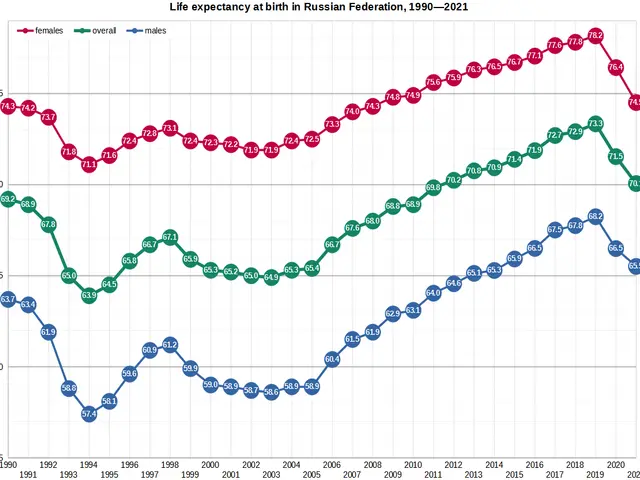Texas enhances microgrid resources with a $1.8 billion investment
In a series of developments, the rollback of clean energy tax credits by Congressional Republicans has sparked concerns over the growth of solar and battery manufacturing in various states, as well as the potential impact on jobs and investments.
The proposed repeal threatens announced investments and jobs in largely Republican-led areas, with Georgia alone set to lose more than $23.9 billion in new investments and over 32,000 new jobs, according to reports from the New York Times. This potential loss could extend to Kentucky, where the Solar Energy Industries Association warns that the rollback could result in the loss of 3,300 existing and potential jobs in the state's solar and battery manufacturing sector, as stated by the Kentucky Lantern.
Meanwhile, the growth of battery storage in Texas has been a silver lining, significantly reducing the likelihood of rolling blackouts during peak August heat this year. The Texas state grid operator projects a less than 1% chance it will have to implement rolling blackouts, but warns that the proposed rollback of clean energy tax credits could damage its ability to keep up with demand, as reported by the San Antonio Express-News.
Elsewhere, the Florida director of the Environmental Defense Fund has called for Florida regulators to delay approval of Florida Power & Light's request for a nearly 30% rate increase, instead prioritizing consumer protection and long-term value, according to The Invading Sea.
In a separate development, a California-based carbon capture company, Savor, which was founded and financially supported by Microsoft founder Bill Gates, is building a facility in Louisiana. The company has managed to preserve its federal funding and navigate partisan politics by appealing to Republicans with the promise of jobs and heavy industry in their districts, and to Democrats with the prospect of reducing climate change, as reported by Politico.
The clean energy sector has also faced challenges in other areas. Shares of Texas-based Tesla are down 24% for the year so far, as reported by the Houston Chronicle. Meanwhile, a hydrogen company has fallen behind on its plans to build a Louisiana facility, with projected costs swelling from $4.5 billion to over $8 billion, according to the Wall Street Journal.
In a positive note, solar panel manufacturer Qcells has formed a new company to recycle up to 500,000 panels annually at a new facility next to its Georgia factory, as reported by Capitol Beat News Service.
As Congress continues to debate the rollback of clean energy tax credits as part of Trump's 'big beautiful bill,' states like Ohio are taking matters into their own hands. Ohio has passed a law requiring utilities and regulators to consider how new technology can shore up the state's electric grid, as reported by CANARY - Kathiann M. Kowalski reports.
Texas lawmakers have also taken action, approving a $1.8 billion fund to boost the power grid by supporting the deployment of microgrids at critical facilities such as hospitals and water treatment plants, as reported by our website.
Amidst the debate, voter turnout for two seats on Georgia's Public Service Commission remains low, with early voting at 0.5%, according to the Georgia Recorder.
As the clean energy landscape evolves, it remains to be seen how these developments will shape the future of renewable energy in the United States.
Read also:
- Harnessing Magnetism's Potential: Revolutionizing Energy Production for a World Transformed
- Tension escalates within TransnetBW's network infrastructure
- Specialists comment on Ed Miliband's decision to scrap the ban on onshore wind farms
- United in reformation for the future: City of Lünen becomes part of the network








